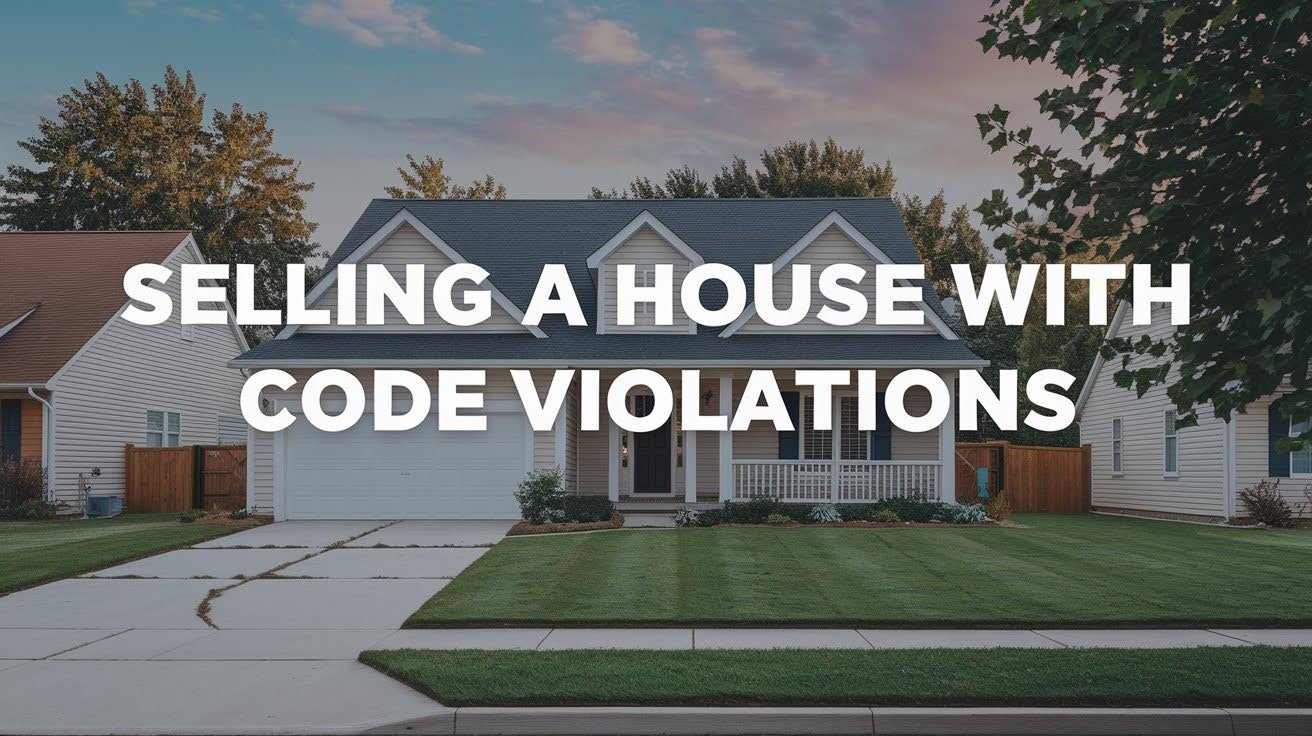Are you curious about the potential trouble from a cash offer on your home? Others exist. Many are also concerned that accepting a cash offer could be illegal in some way.
The truth is that selling your house for cash is perfectly legal in the United States. Real estate buyers do it regularly, both individual buyers and bulk investors. Just make sure the transaction is legal and your buyer is legitimate.
We’ll explain cash home sales, the applicable law, and how to avoid a cash home sale scam. So whether you’re looking to sell your home fast for cash or are curious about what it all means, here’s what you need to know before you say yes to a cash home sale offer.
The Legality of Cash Sales: What You Need to Know
Selling your house for cash is completely legal in the United States. No law prevents you from accepting cash payment for your property. In fact, cash sales happen every day across the country.
The government allows cash transactions for real estate as long as you follow proper procedures. You’ll need to report the sale on your taxes and use legal documents. But the actual method of payment, cash instead of a mortgage, is totally fine.
Many people choose cash sales because they’re faster and simpler than traditional sales. As long as you work with legitimate buyers and follow your state’s rules, you can sell your home for cash without any legal problems.
Federal Laws on Selling a House for Cash
The federal government doesn’t ban cash home sales. No law exists that stops you from selling your property this way. Cash transactions are allowed in all 50 states.
The IRS requires you to report any home sale on your taxes. This applies whether you receive cash, a check, or any other payment method. You’ll need to follow standard reporting rules for capital gains.
Federal anti-money laundering laws require large cash transactions to be reported. But these laws target illegal activity, not normal home sales. As long as your transaction is legitimate, you have nothing to worry about.
State-Specific Regulations and Requirements
Each state has its own rules for real estate transactions. Some states require written contracts for all property sales. Others have specific forms you must use when transferring property ownership.
A few states limit how much physical cash you can use in one transaction. Most buyers use wire transfers or cashier’s checks instead of actual bills. Check your state’s requirements before closing your sale.
You must disclose known problems with your property in most states. This applies to both cash and traditional sales. Failing to disclose issues can lead to legal trouble after the sale.
What Does “Selling a House for Cash” Actually Mean?
A cash sale means the buyer doesn’t need a mortgage or loan. They have the full purchase price ready to pay you. This makes the process much faster than waiting for bank approval.
“Cash” doesn’t always mean physical bills. Most buyers pay with wire transfers, cashier’s checks, or certified checks. These methods are safer and easier to track than carrying actual cash.
The title transfer happens the same way as any other sale. You’ll sign documents that officially move ownership from you to the buyer. The only difference is that the buyer pays up front instead of getting financing.
Legal Documentation Required for Cash Transactions
Every cash sale needs a purchase agreement. This legal contract outlines the sale price, closing date, and terms both parties agree to. Without this document, you have no legal protection.
Buyers must prove they have the money before closing. They’ll provide bank statements or a proof of funds letter. This protects you from buyers who can’t actually complete the purchase.
Your property needs a clear title without liens or claims. If you owe money on a mortgage, you’ll pay it off at closing. Any tax liens, judgments, or other debts must be settled before transferring ownership.
Benefits of Selling a House for Cash
Plus, you might save money on repairs and fees. Many cash buyers purchase homes as-is. Let’s look at the specific benefits you can expect.
- Cash buyers often purchase homes in any condition, so you can skip repairs, painting, or upgrades.
- You’ll save time, money, and stress by avoiding costly fix-ups before the sale.
- Closing costs are typically lower since there’s no lender or mortgage-related fees involved.
- You’ll also cut down on holding costs like utilities, insurance, and property taxes while waiting to close.
- Cash deals are more reliable and faster, with fewer chances of falling through due to financing issues.
How to Sell Your House for Cash Legally and Safely
The key is doing your homework before accepting any offer. Let’s look at each step in detail so you can sell with confidence.
Finding Reputable Cash Buyers
Several types of buyers pay cash for homes. Real estate investors buy properties to fix and resell. iBuyers are companies that buy homes online and close quickly. House-buying companies purchase directly from homeowners.
Always verify that buyers actually have the money they claim. Ask for proof of funds before signing anything. This can be a bank statement or a letter from their financial institution.
Check their reputation online before doing business. Look up reviews on the Better Business Bureau website. Read what other sellers say about their experience with the buyer.
Setting a Fair Price for Your Property
First, find out what your home is worth in today’s market. Look at recent sales of similar homes in your area. You can hire an appraiser or get estimates from real estate agents.
Cash buyers typically offer 50-95% of market value. They offer less because they take on more risk and provide convenience. The exact amount depends on your home’s condition and your local market.
You can negotiate the price and terms. Don’t accept the first offer if it seems too low. Get multiple offers from different buyers to compare your options.
Preparing Your Property for Sale
Fix any serious safety issues that could cause legal problems. You must tell buyers about known defects in most states. Being honest protects you from lawsuits after the sale.
A clean home makes a better impression on buyers. Remove clutter and personal items. You don’t need to stage like a traditional sale, but basic cleaning helps.
Gather all important paperwork ahead of time. This includes your deed, property tax records, and any warranties. Having documents ready speeds up the closing process.
Potential Risks When Selling a House for Cash?
Not all properties should be sold for cash. If your home is in great condition in a hot market, you might do better listing it traditionally. Multiple buyers competing could drive up your price:
- Always ask for proof of funds: A serious buyer has no issue showing they have the money. If they hesitate, it’s a red flag. Walk away.
- Never sign blank documents: Always read everything carefully before putting your name on it. Scammers can change terms later.
- Avoid upfront fees: Real buyers don’t ask you to pay before closing, they pay you, not the other way around.
- Research every company: Before accepting any offer, check the buyer’s background and reputation thoroughly.
- Expect cash offers to be lower: Cash buyers factor in repairs, time, and profit, so they usually offer 10-30% below market value.
- You lose competitive bidding: Traditional listings can spark bidding wars and drive up your sale price, unlike cash deals.
- Cash sales are faster but limited: You negotiate with one buyer at a time, so you may miss out on multiple offers.
- Cash works best for certain properties: Homes needing repairs, properties in slow markets, or urgent sales are ideal for cash buyers.
- Move-in-ready homes often sell better traditionally: If your home is in a desirable area and ready to live in, you might get more money listing it the usual way.
Closing the Sale: Legal Steps and Requirements
The final steps move ownership from you to the buyer officially. You’ll sign documents, receive payment, and hand over the keys. Following proper procedures protects you from future legal issues.
Drafting a Purchase Agreement

Your purchase agreement must include key details. This includes the sale price, closing date, and what’s included with the house. Both parties sign to make it legally binding.
Include any contingencies that apply to your sale. Common ones are home inspection results or title clearance. Even cash sales might have some conditions before closing.
The agreement should spell out what happens if someone backs out. This includes whether deposits are refundable. Clear terms prevent disputes later in the process.
Working with Real Estate Professionals

Hiring a real estate attorney provides legal protection. They review contracts and handle the closing process. The cost is usually $500-$1,500, which is worth it for peace of mind.
Attorneys catch problems before they become expensive mistakes. They explain complex terms and protect your interests. In some states, using an attorney for closings is required by law.
Title companies research your property’s ownership history. They ensure no hidden liens or claims exist. They also provide insurance that protects both buyer and seller from title problems.
Transferring Ownership Properly

The title transfer makes the sale official. You’ll sign a deed that moves ownership to the buyer. This document gets recorded with your county government.
If you have a mortgage, it must be paid off at closing. The title company handles this payment from the sale proceeds. You’ll receive what’s left after paying off debts and closing costs.
Final documentation includes the deed, bill of sale, and closing statement. Keep copies of everything for your records. You’ll need these documents for taxes and future reference.
Keeping Records for Your Protection

Once your sale is complete, don’t just celebrate and move on, make sure you keep all your paperwork organized. This includes your deed, closing statement, proof of payment, and any correspondence with the buyer or title company.
You’ll need these documents when filing your taxes or if any ownership questions come up later. Having them on hand saves you time and stress down the road.
It’s smart to store both digital and printed copies in a safe place. Think of it as your “peace of mind” folder, proof that your sale was handled properly and you’re fully protected.
Handling Payment the Right Way

Selling your home for cash, how you receive the money matters just as much as the amount itself. Always insist on a secure method like a wire transfer or cashier’s check to avoid physical cash to reduce risks.
Before handing over the keys, double-check that the funds have cleared in your account. If anything feels off or rushed, take a step back and verify through your bank or title company.
For extra safety, consider using an escrow service. It holds the buyer’s funds until all paperwork is complete, giving you confidence that you’ll get paid properly and on time.
Conclusion
It is legal to sell your home for cash. Cash sales can help you since they close faster, lack financing difficulties, and have no closing fees. You’ll usually get less for it than from selling.
Cooperating with honest buyers and following laws is important. Sellers can still take precautions, though. These include getting the buyer to prove that they have the money for it, getting everything in writing, and hiring an attorney.
These measures act to protect you against scams and lawsuits. Get multiple offers, and know your laws before signing any agreement, so your cash sale is legal and binding.
Frequently Asked Questions
Can I legally accept physical cash for my house?
Yes, you can accept physical cash, but most people use wire transfers or cashier’s checks instead. Large cash amounts must be reported to the IRS. Wire transfers are safer and easier to track.
Do I need a lawyer to sell my house for cash?
Laws vary by state, but hiring a lawyer is smart. They review contracts and protect your interests. The cost is small compared to the potential problems from mistakes.
How long does a cash home sale take?
Most cash sales close in 7-10 days. Some can close even faster if both parties are ready. Traditional sales take 30-60 days because of mortgage approval delays.
Will I pay capital gains tax on a cash sale?
Yes, the same tax rules apply to cash and traditional sales. You might qualify for the $250,000 capital gains exclusion ($500,000 for married couples). Consult a tax professional.
Are cash buyers always real estate investors?
No, some regular home buyers have enough savings to pay cash. Buying companies, investors, and house-buying companies also purchase with cash. Always verify the buyer has funds.





